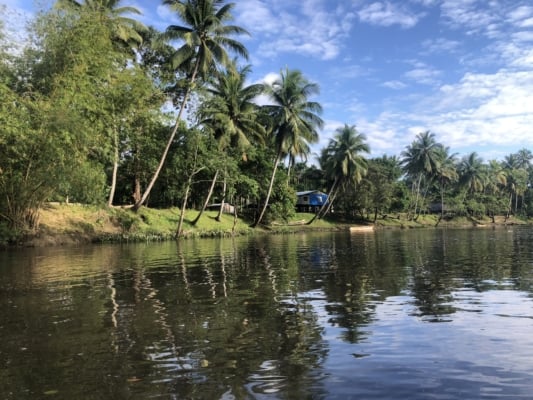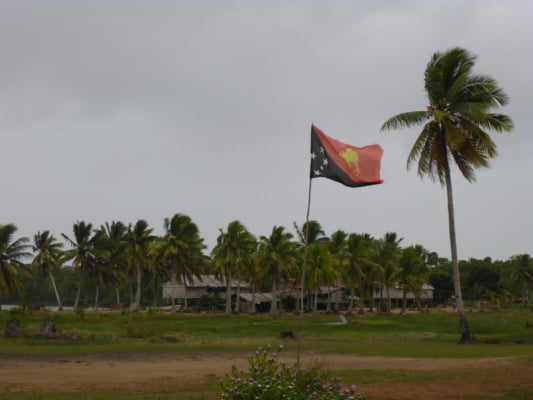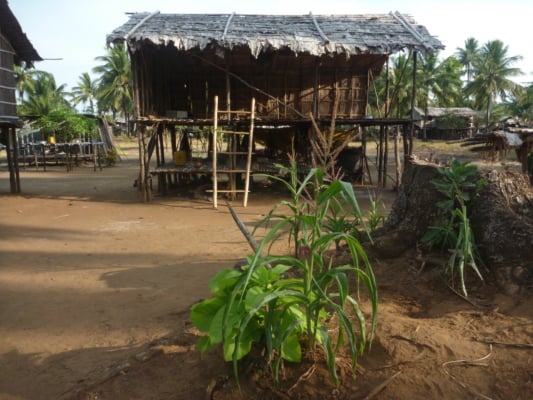(10 minute read)
Local leadership and locally-led solutions are more important than ever for COVID-19 response and recovery. How can international actors and systems support local leadership in the coronavirus crisis?
From community to national government responses, the shape and character of leadership in the coronavirus crisis will be at the centre of determining its outcomes. Across the world, we have already seen a range of local responses to the crisis that challenge dominant narratives, including of those in aid-receiving countries as ‘passive victims of yet another viral outbreak’.
In Senegal, for instance, scientists have been developing a ‘cheap and easy’ kit for decentralised testing which could enable countries in the region to maintain economic activity whilst controlling the spread of the virus. From Kerala’s ‘rockstar’ Health Minister, civil society groups in the Pacific, to ‘moral leadership’ in the Caribbean, women are supporting their communities and driving national, as well as regional, action. And, while advanced economies like the UK and the US have struggled to contain COVID-19, middle-income countries like Vietnam and Jordan have acted decisively and effectively in successfully controlling the spread of the virus.
More generally, there has been a suggestion that COVID-19 may be moving societies towards ‘re-achieving the need of locality’. Though physically distanced, communities have come together to support each other in new and localised ways. The rise in volunteerism and local action may be marking a return to the importance of the local, with ‘morally revivifying effects’.
This focus on locality could be an opportunity for new forms of global interdependence and solidarity. COVID-19 presents a key moment to promote a form of global interdependence that is sensitive and responsive to the needs of locality, catalysing long-heralded changes in foreign aid practices.
The COVID-19 crisis is already driving change
We increasingly understand that foreign aid is most effective when it’s able to support local leadership, and least so when it distorts local capacity and agency. Alongside efforts to ‘do development differently’, there have been increasing calls to reform aid by ‘going local’. Coronavirus already appears to be driving progress in two key areas of these efforts.
First, at an operational level, COVID-19 is increasing the need for localisation, where aid funds are provided directly to local actors and organisations for project delivery. Space created by the absence of aid workers on the ground could lead to more locally-led forms, and makes localisation not just desirable, but an ‘operational necessity’. As such, COVID-19 provides an opportunity for donors, NGOs, and other aid-funded institutions to adapt their business practices. This includes more arms-length, carbon-friendly models, where local organisations and expertise take on the delivery of aid-funded projects and are provided with space and core funding necessary to do so.
Second, the COVID-19 crisis emphasises the importance of learning and adaptation using local, contextual knowledge, which is central to the methods of the ‘second orthodoxy’. One of the most challenging aspects of COVID-19 is how much we don’t know about it, and how it appears to manifest itself differently, depending on context or demographics. For example, in this crisis, there has been a lively discussion around whether lockdowns are an appropriate response in low-income countries. A central part of responding effectively to COVID-19 will, therefore, be forms of locally-led knowledge-gathering, sense-making and adaptation, which can draw on local knowledge and cross-cultural learning in a rapidly changing environment.
Interesting locally-led initiatives are already emerging to fill these knowledge gaps. For instance, the GCAP has surveyed its national coalitions to understand local COVID-19 responses and arising needs around the world. Elsewhere in the Pacific, it seems local researchers are being granted more space to use indigenous methods such as talanoa and talk-story, which don’t demand ‘training’ by outsiders. Openness to new methodologies has been facilitated by high demand for information alongside reduced aid agency presence on the ground. There is an opportunity to build on this with further emphasis on local systems of data collection, analysis and argument, including supporting local academics and think tanks.
Such efforts are already leading to change in the time of COVID-19, and can be built on further. But there is another element of locality which requires attention. This relates to the way policy decisions are made – and who makes them.
It matters how policy decisions are made: the importance of legitimacy & trust
Francis Fukuyama foretold early on in the crisis that, rather than regime type, it would be trust, derived from legitimate leadership, that would determine how well countries manage the virus and its effects. Indeed, in Vietnam, it may have been the country’s capacity to overcome some of its more repressive tendencies and share information openly that has been key to its success. Observers have noted that this level of transparency is new:
‘The state’s willingness to share crisis information during the COVID-19 epidemic, to accept responsibility in managing a structured and comprehensive response, and to listen to its citizens, business owners and foreign investors in defining a recovery strategy may well be a milestone in the country’s approach to governance.’
In the absence of trust, containment measures can be experienced as repressive and coercive. Indeed, the success of such measures requires that citizens view the sacrifices they are being asked to make as a necessary trade-off for the ‘greater good’. In a number of countries, we are already beginning to see the strength of such collective willpower erode in anti-lockdown protests across the globe. At this stage, the legitimacy of leaders and their decision-making processes becomes ever more important.
Legitimate power needs to be ‘granted not grabbed’. Establishing trust will require leaders to develop policy that responds to the advice of scientific experts, as well as the views, experiences and needs of citizens. For Amartya Sen, policy challenges “call for careful listening rather than inflexible decisions without proper consultation”, supporting his view that “governance can be greatly helped by informed public discussion”. Alex de Waal has also suggested consulting with communities about alternatives to lockdown. As we have learnt from similar health crises, policy responses won’t work unless they effectively engage communities and are tailored to the realities of local contexts.
The role of aid: locally informed or locally-led?
These issues of local decision-making also impact the way we think about the help provided via foreign aid, and international cooperation more generally. Aid programmes can risk damaging the legitimacy of governments by promoting upward accountability, and ‘multilayered governance’, that pulls leaders away from the needs of, and their accountability to, constituents. In other cases, aid risks conferring legitimacy to leaders who do not act on behalf of the needs and rights of their citizens.
As well as legitimacy and trust, local decision-making is important for other reasons, including accountability, learning-by-doing, and mobilising and coordinating action. But there are some examples which raise concerns that even reformed aid methods risk being locally-informed without being locally-led.
In the time of COVID-19, the growing use of localisation and emphasis on local knowledge provide clear opportunities for greater local decision-making and an accompanying shift in power. But some donor practice still stands in the way of realising this potential, which raises the risk that close control by agencies who were previously on the ground could become more like ‘remote control’, than enabling locally-led processes. For instance, David Malpass has proposed that World Bank COVID-19 relief aid should include policy conditionality, including ‘structural reforms’. And if the impact of this crisis is to make aid-receiving states more aid-dependent, then it may also result in governments becoming more susceptible to donor policy conditions.
However, donor countries are facing their own economic crises as a result of COVID-19, with predictions that EU countries will face shocks “without precedent since the Great Depression“. Germany’s economy has recently slid into recession, as has Japan’s, while unemployment in the US has reached dire proportions, with an indication that it could peak at 25%.
At the global level, observers have pointed to a “dearth of moral leadership, a resurgence of nationalism, and competition between nations, all struggling to deal with their own problems”. In such environments, there is a risk that aid budgets decline further, and international cooperation (not just aid) to address global public goods is diminished as a result.
In the Pacific, this has led to concern that the region’s geopolitics will shape aid responses, rather than Pacific leaders. But regional leaders are alert to this issue and have been reinforcing their role in responding to this crisis. For instance, the Pacific Islands Forum Secretary General, Dame Meg Taylor, has stated that:
“The feeling amongst leaders in the Pacific is that we’re going to take control in our countries and our region. If we don’t, we’re going to be left at the whim and interests of others. For the leaders, as well as looking at domestic issues, they’re also looking at how the geopolitics will play out. […] I think our island countries want to help themselves. It’s like the climate issue – the voice of the Pacific needs to be heard.”
How, then, can we ensure that international actors support local leadership and legitimacy in the time of COVID-19?
Throwing away the remote control to support resilience through locally-led practice
COVID-19 is an urgent crisis, but a long-term issue, with a slow transition to the new normal. The decisions and responses made now by international actors need to support local systems that will be resilient to the next phases of the epidemic, which could be even more disruptive, including potential debt crises, long-term socio-economic and political instability.
Indeed, moments of crisis may present critical junctures or act as ‘catalysts’ for leaders and communities in aid-receiving contexts to gain greater control over their own social change processes. David Mwambari, for instance, has suggested that ‘as the West focuses on its own survival’, Africa ‘will have the chance to become more autonomous and self-reliant’.
The strength of local leadership and decision-making, as we have already seen, will ultimately determine how societies emerge out of this crisis. Aid in the time of Corona must be willing to hand over decision-making authority to aid-receiving governments and communities while continuing to provide funding. Local leaders must be in the driving seat, and their responses must be connected and accountable to affected communities.
One approach that donors could take is for their guidance and advice on policy responses to be ‘open’ in the sense that it suggests policy options – and their potential strengths and weaknesses – but leaves space open for leaders to choose which options they prefer, and how to tailor them to their own communities. Open advice creates policy space for local actors and can thereby support the legitimacy and accountability of local processes. External actors could also explore how better to support the process of policymaking – through, for example, enhanced transparency or better use of evidence – rather than trying to preempt or negotiate the choices made.
New forms of global interdependence?
Such a focus on the process of decision-making can facilitate trust between states and societies, but is also important for how we think about the relationship between states internationally. In a context of ‘democratic deficits’ at the transnational level, deliberative spaces, which value the local by ‘broadening the range of debates and narratives that are considered’ could support more inclusive and integrated responses to the Coronavirus pandemic.
At this time, when the interconnectedness of our global community is more evident than ever, the Beyond Aid agenda is even more important. Global solidarity based on strengthened local voices must be reemphasised in international decision-making fora. In Africa, for instance, attention has been placed on the importance of regional responses, with the African Union already demonstrating its capacity to ‘inspire collective action in a unified call for international solidarity’. In the Pacific, leaders stress the critical importance of multilateralism on issues such as climate change, not least because of the inability of small individual countries to “influence, impact, persuade or bully anyone”.
Our call is not to ignore the international drivers of poverty and injustice, nor the important work that needs to be done on global public goods. Instead, it is to emphasise the legitimacy of local leadership, collaboration, exchange and decision-making, and the need to tailor policy and practice to specific contexts. Furthermore, we suggest that from these more robust foundations, international cooperation might be rebuilt to look very different to what is today.












